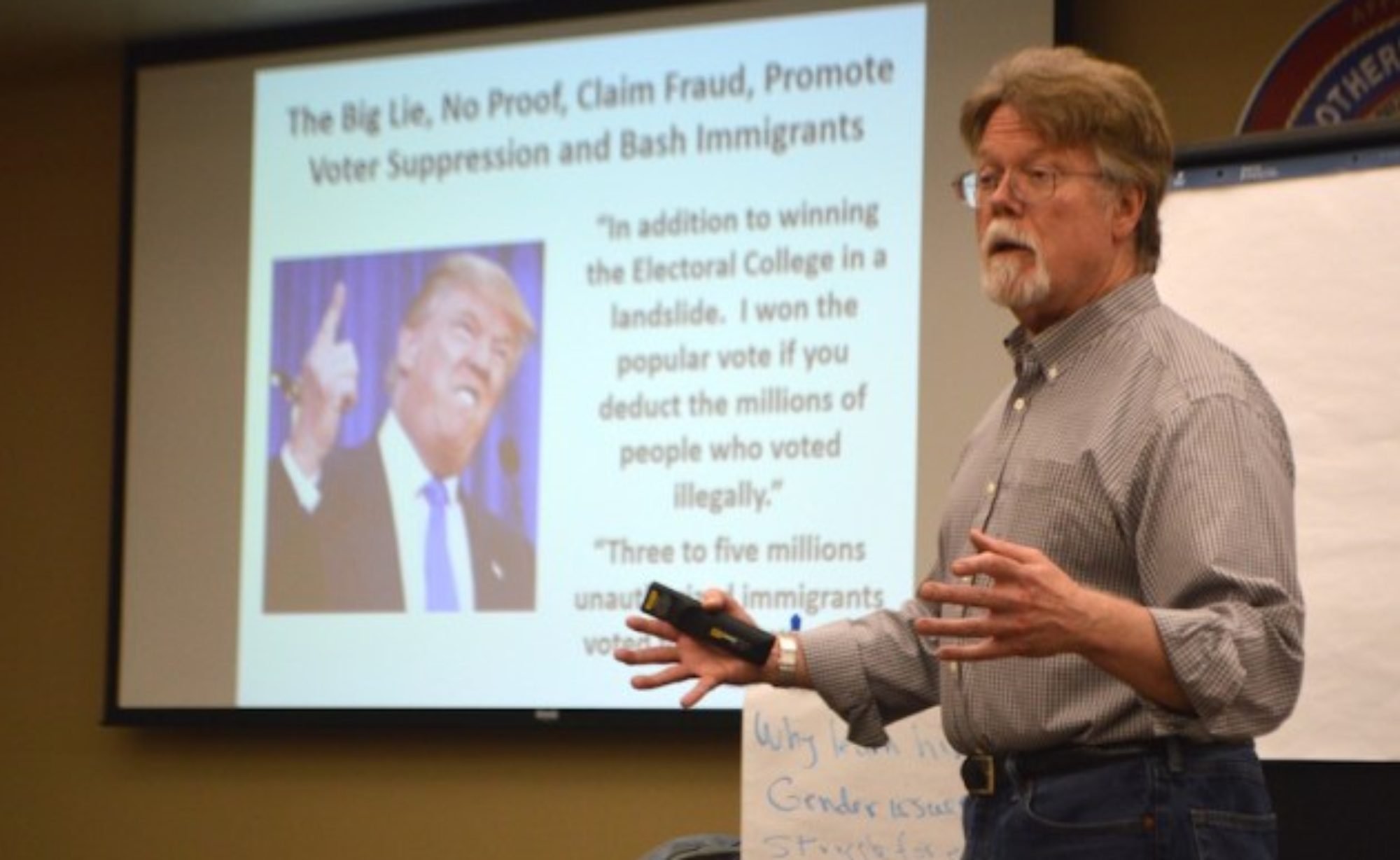In the past two years, I have had the honor and opportunity to talk with thousands of people who are deeply concerned about the future for their families, their communities and our world.
Here is one story.
Earlier this week, I was flying home after speaking to the Machinists Union national retiree convention.
I sat next to a middle-aged woman who is an independent contractor for a large drug company in the Southwest. She is very angry about how they exploit her and her constant insecurity about steady work and a secure future.
I steered the conversation toward unjust corporate domination and their drive to create a “social insecurity system” in which none of us feel secure.
“Tell me more,” she said.
She began asking me what she and people like her could do to help build a brighter future. After I shared some ideas, she was warming up to getting involved politically. A first for her. Then a light bulb came on in her head.
Let me paraphrase: “You know what really makes me mad. All these Mexicans who don’t want to learn English. They keep to themselves. They don’t want to work hard. They are getting all this help from the government. I almost lost my house to foreclosure and I didn’t get any help. Why does the government help them and not me?”
I gently responded: “When I was a kid, our family almost lost our house to foreclosure. I am still haunted by that trauma. But do you really think all Mexicans are lazy?”
“Of course not. I know hard-working Mexicans. What really bothers me is lazy people who won’t work.”
“So your big concern is lazy people, not Mexicans?”
“YES.”
“May I share some thoughts with you?”
“YES.”
“How many of the Wall Street executives who wrecked the economy in 2008 and almost caused you to lose your home do you think were undocumented workers from Mexico?”
She laughed. “Well none of them.”
“Is it possible that you might be focusing your legitimate frustration and anger on another group of struggling working people and not on corporate CEOs that are threatening all of us?”
“I see your point.”
“May I share another idea with you?”
“YES.”
“I had a dream last night that every lazy person in America permanently got over being lazy. It was wonderful. They all got up the next day. Showered, ironed their clothes, got their resumes together, and hit the streets at 8 AM looking for a full-time job. Thank goodness laziness was gone forever. At the end of the day, 23 million of them came home without a full-time job.”
Her response: “23 MILLION?”
“Yes.”
I explained the employment statistics from the U.S. Department of Labor.
Her response: “Oh my God!!”
“May I continue?”
“YES.”
“The next day 8 of the 23 million no-longer-lazy people decided they needed more education and training to get a job. When the 8 million showed up at their local community colleges, the lines were 15 blocks long and tuition costs were skyrocketing. At the end of the second day, most of the 23 million were struggling. So what do we do if everyone quits being lazy and we are more than 20 million full-time jobs short and millions can’t get needed education and training?”
She looked at me and said: “We need to make the corporations create more jobs. They are filthy rich. While we are at it, the government should create more jobs.”
“Great idea.”
She then blew my mind. “A few years ago, I complained to my manager that I felt they were violating my rights as an independent contractor. He gave me a hard look and said, ‘If you don’t like it here you can leave. You can be replaced pretty quickly.’”
“How did that feel?”
“I was scared to death. I am single and was fighting off foreclosure. I dropped my complaints.”
“What was done to you was probably illegal. Do you want to live in a country where employers can threaten to destroy hard-working people like you?”
“NO!!”
Five minutes later, we deplaned.
I will never see her again, but I hope she got a better insight into how people like her are encouraged to turn their justifiable anger against other people who are also being victimized.
I gave her my business card and said email or call me sometime. “I have some ideas about how you can take your frustration and put it to good use.”
There are tens of millions of frustrated, angry and confused members of our communities who want hope. How do we individually and collectively expand our ability to reach out to them?
